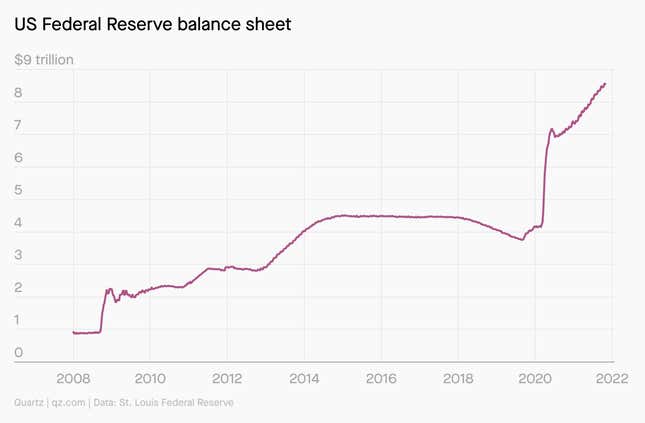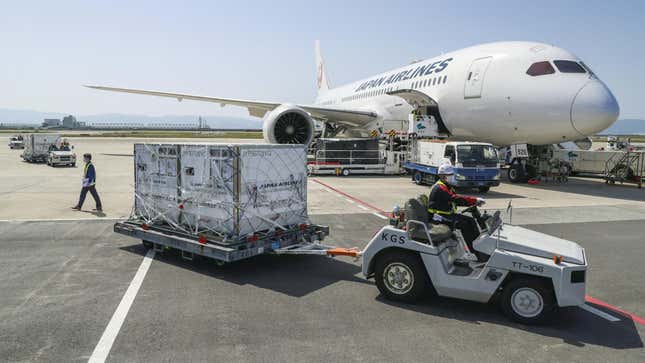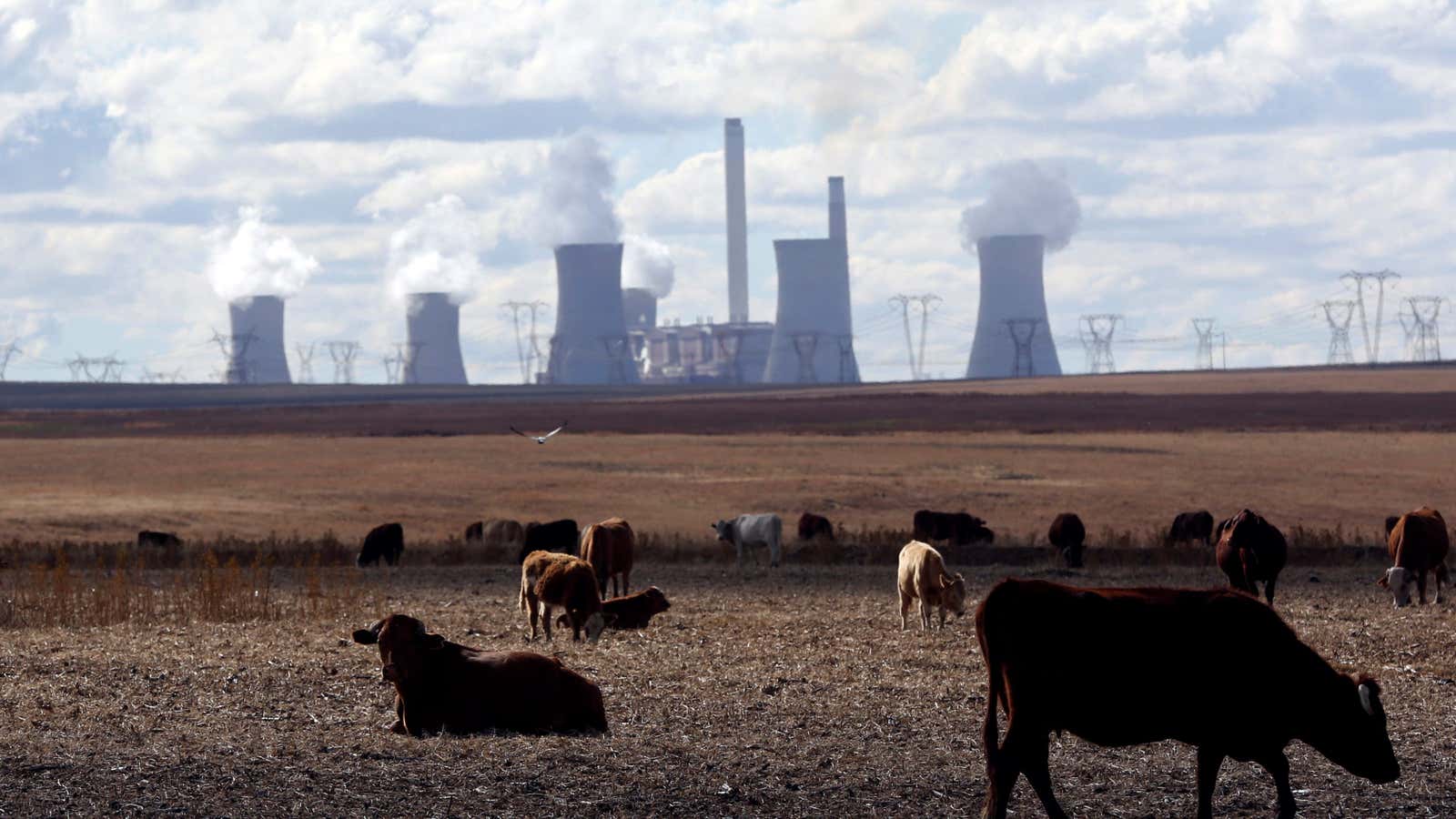Good morning, Quartz readers!
Was this newsletter forwarded to you? Sign up here. Forward to the friend who doesn’t want to go back to the office.
Here’s what you need to know
More than 100 countries pledged to slash methane emissions at COP26. The US and EU-led pact aims to cut emissions of the greenhouse gas by 30% by 2030. Separately, 110 world leaders promised to end deforestation by 2030, and Amazon founder Jeff Bezos said his Bezos Earth Fund will commit $2 billion to restoring habitats and transforming food systems.
Yahoo said it’s exiting China. It’s the third major US tech platform, following LinkedIn and Epic Games, to end operations in the country due to data and privacy regulations.
Facebook’s facial recognition program is shutting down. The social platform said it will delete facial recognition data entirely for 1 billion of its users over concerns about its potential misuse by governments and private actors.
Actually, Hertz has started receiving Tesla shipments. After the automaker’s CEO, Elon Musk, claimed a deal had yet to be reached, the rental car company said deliveries of the 100,000 electric vehicles it ordered had already begun.
Penguin Random House’s purchase of Simon & Schuster is in trouble. The Department of Justice has sued to block the $2.18 billion deal, arguing that it would give the company inordinate influence over how much authors are paid and which books are picked to be published.
The UK and India launched a global solar grid initiative. First announced last month, the 80-country venture aims to make green energy more affordable and reliable. Meanwhile, BP reported robust profits thanks to rising oil and gas prices.
What to watch for
The US Federal Reserve is expected to start “tapering” today, or in human words: the central bank will probably reduce the amount of US government bonds it buys every month. Right now the Fed purchases $120 billion every period, and the assets on its balance sheet have swollen to almost $9 trillion.

When the bank buys these bonds, longer-term interest rates tend to drop. If everything goes well, businesses are more likely to invest and hire workers, and regular people who see their investments rise in value are more likely to spend money.
But now there are signs that inflation is taking off, even as the employment market has yet to fully heal from the pandemic. Tapering asset purchases is a kind of middle ground. The Fed hopes it will reassure everyone that it’s watching inflation without pulling away too much too soon.
Freight gets more belly room

As passenger flights resume between the US and dozens of countries including China, India, and Brazil, they’ll deliver much-needed relief to the world’s strained supply chains. The reason is simple: More passenger air travel means more planes flying between the US and its global trading partners with a lot of cargo in their bellies.
2: 40-foot containers of freight the largest passenger planes can carry
50%: Percentage of air cargo capacity passenger planes accounted for pre-pandemic
1/5: Proportion of American imports that arrive on passenger routes between the US and the EU
But while US-EU passenger flights will be a key factor in helping global supply chains return to normal in 2022, transpacific freight won’t see as much of a boost.
Startups (trying to) decarbonize the world
While leaders at COP26 strike agreements to reduce greenhouse gas emissions globally, several companies are making it easier for individuals to reduce their own carbon footprints.
Apps that track emissions related to grocery and travel choices or provide a marketplace for buying carbon offsets (though beware of potential greenwashing) are growing in popularity. We looked at 22 startups that are trying to decarbonize the world, including:
🛒 Evocco: An app that tracks grocery-related carbon emissions through receipts.
⛽️ Offsetra: An online shop for carbon offsets with a focus on blockchain and NFTs.
🌳Pachama: An AI-based reforestation tracker for businesses.
✦ Quartz members get full access to this list and more coverage of the companies trying to make business better. Try a membership free for seven days.
Handpicked Quartz
🎥 A Bollywood superstar’s NFT auction has attracted half a million dollars
🏥 The only reason more Americans haven’t quit their jobs is healthcare
🌳 Brazil is failing to stop illegal logging of the Amazon
🖥 How to build a company culture that isn’t office-centric
🌎 This is how the Federal Reserve will confront climate change
💰 Meet Barclays’ new chief, India-born CS Venkatakrishnan
Surprising discoveries
Two California female condors reproduced asexually. The endangered birds were able to lay and hatch eggs without mates.
Microsoft is bringing Clippy back (again). The oft-parodied paperclip-shaped assistant will return to Teams in sticker form.
An exploding tick population is killing Maine’s moose. Paradoxically, the US state hopes culling moose will lead to fewer ticks.
The toilet on SpaceX’s Crew Dragon capsule is out of order. The four astronauts using the craft to return to Earth from the International Space Station will have to rely on “undergarments.”
Samsung made a pair of jeans with a special pocket for its Galaxy Z Flip3. Apparently other pockets are too big for phones (but most women would disagree).
Our best wishes for a productive day. Send any news, comments, functioning space toilets, and functional pockets to hi@qz.com. Get the most out of Quartz by downloading our iOS app and becoming a member. Today’s Daily Brief was brought to you by John Detrixhe, Nicolás Rivero, Liz Webber, Morgan Haefner, and Samanth Subramanian.
